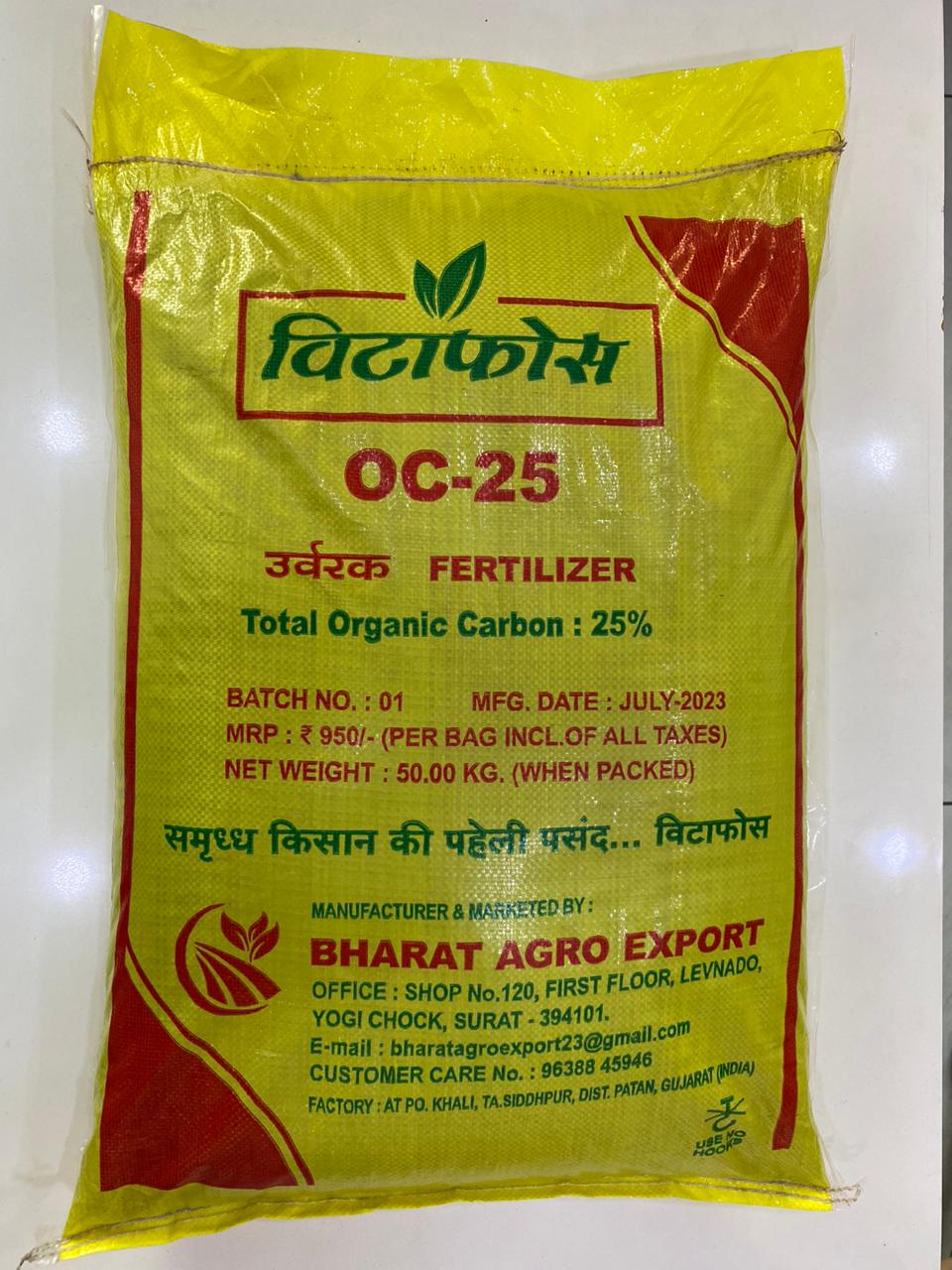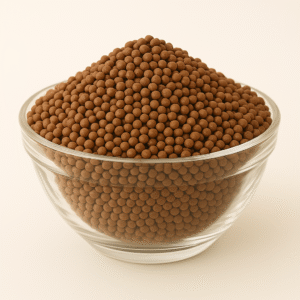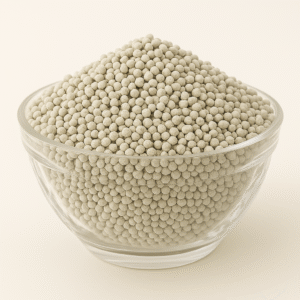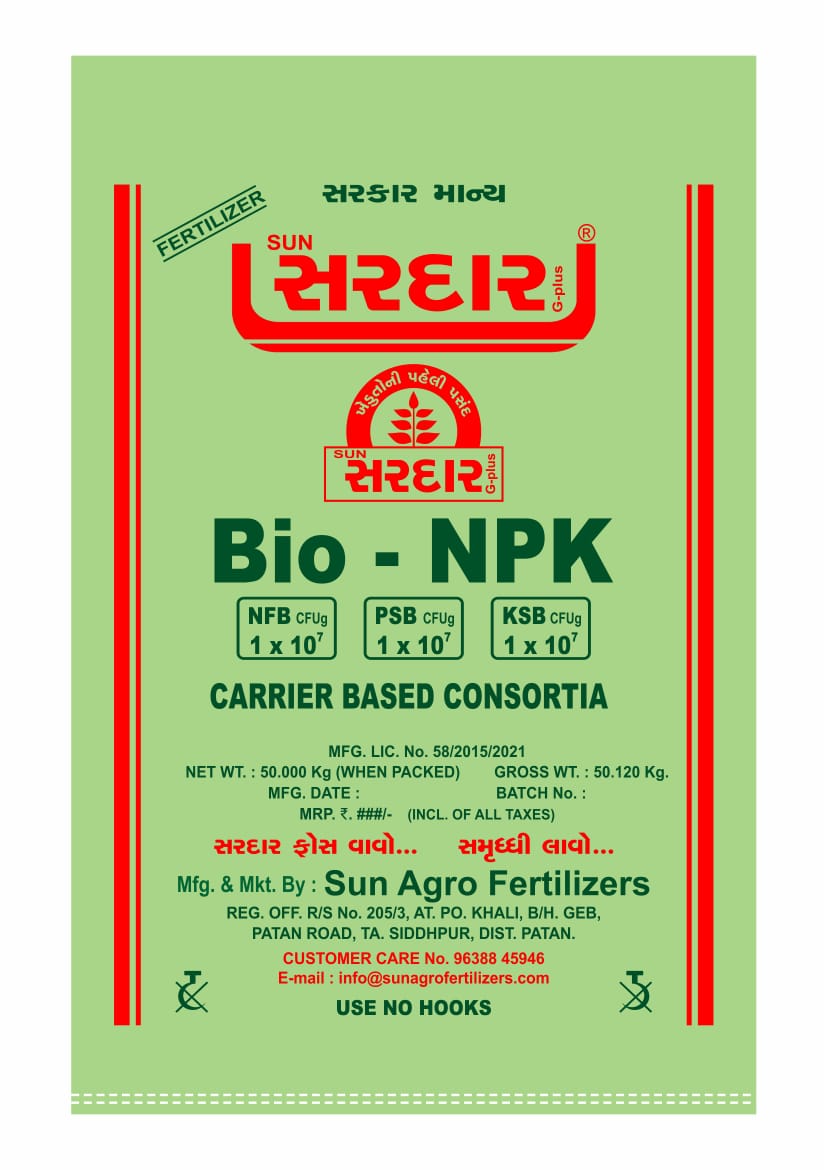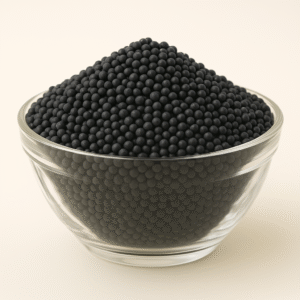VITAPHOS OC_25
Organic carbon is the key component of organic matter in soil, derived from plant and animal residues. It improves soil fertility, enhances water retention, supports microbial life, and boosts crop growth. High organic carbon ensures healthy, productive, and sustainable farming.
Description
🌿 What is Organic Carbon?
Organic carbon refers to the carbon component of organic compounds found in soil, primarily derived from plant residues, animal manures, compost, microorganisms, and organic fertilizers. It is a key indicator of soil health, directly influencing soil fertility, structure, and microbial activity.
🔬 Forms of Organic Carbon:
Active Organic Carbon – Easily decomposed material (e.g., fresh plant residues, compost)
Passive Organic Carbon – More stable, humified matter (e.g., humus)
Particulate Organic Carbon (POC) – Intermediate form between active and passive
🌱 Sources of Organic Carbon in Agriculture:
Compost and decomposed organic matter
Cow dung, green manure, poultry litter
Organic fertilizers like PROM, vermicompost, and bio-slurry
Crop residues and mulches
Cover crops (e.g., legumes)
✅ Functions & Benefits of Organic Carbon in Soil:
Function Benefit
Improves soil structure Enhances porosity, aeration, and root penetration
Boosts microbial life Provides food for beneficial microbes and earthworms
Increases nutrient availability Improves cation exchange capacity (CEC), helps retain and release nutrients like N, P, K
Improves water retention Organic matter acts like a sponge, holding moisture
Buffers soil pH Stabilizes pH by neutralizing acidic or alkaline soils
Reduces erosion Binds soil particles, reducing wind and water erosion
Sequesters carbon Captures atmospheric CO₂ and stores it in soil – fights climate change
📊 Ideal Organic Carbon Content in Soil:
Soil Type Organic Carbon (%)
Depleted soil < 0.5%
Moderate fertility 0.5% – 1.0%
Good fertility > 1.0%
Organic farming standard 1.5% – 3.0%
🚜 Importance in Organic Fertilizers:
Organic fertilizers rich in organic carbon not only supply nutrients but also build long-term soil health. For example:
PROM fertilizer improves phosphorus availability while increasing soil organic carbon.
Compost and manure add both organic matter and microbial biomass.
🧑🌾 Conclusion:
Organic carbon is the backbone of sustainable agriculture. High organic carbon levels make soil fertile, resilient, and productive, reducing the need for chemical inputs and ensuring long-term crop health.
Reviews
There are no reviews yet.
